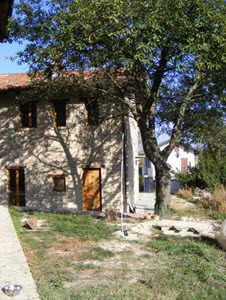 Conserving energy is important. Not only is it good for the planet, but it can also help the homeowner’s wallet. The hot summer sun can be a home HVAC system‘s worst enemy. When a home is bathed in the blazing sun, the air conditioner must work much harder than normal. This is especially true if in the afternoon. Shielding a home with some strategically planted trees can help conserve energy. It reduces air conditioning costs ad makes a home more beautiful at the same time.
Conserving energy is important. Not only is it good for the planet, but it can also help the homeowner’s wallet. The hot summer sun can be a home HVAC system‘s worst enemy. When a home is bathed in the blazing sun, the air conditioner must work much harder than normal. This is especially true if in the afternoon. Shielding a home with some strategically planted trees can help conserve energy. It reduces air conditioning costs ad makes a home more beautiful at the same time.
The Direction That You Need To Plant Your Trees
Contents
It is important to think about direction when planting trees to shade a home. The west and southwest sides of the house are the most important. These are the areas that get the most direct sun in the afternoon. The sun in the early morning is not nearly as intense. Therefore, it is not as critical to create shade in the east.
Trees that keep their leaves year-round are the best choice for sun protection in southern regions. This is because the weather is warm year-round. However, in northern regions, the afternoon sun can help keep a home warmer during the winter. In this case, deciduous trees are the prudent choice. Of course, a strategically positioned row of evergreen trees can help shield a home from the bitter winter wind, which can also help save energy and fuel costs.
How Trees Benefit Your Outdoor A/C Unit
The intake area surrounding the air conditioning unit can also benefit from some shade. A strategically positioned tree or two can shield the unit from the direct sun, thus lowering the temperature of the air that is being taken in. Plus, as water evaporates from a tree’s leaves, the evaporation naturally helps to cool the air within the direct vicinity. This can help an HVAC system work more efficiently, thus lowering energy costs. However, it is important to not plant shrubs and low-hanging evergreens too close to the HVAC unit, as this can interfere with proper air flow.
The more shade a tree creates, the more efficiently it will help shield a home from the sun. As such, a full-grown tree is going to be much more efficient than a smaller young tree. However, even small trees can help, and over the years, the savings will simply grow along with the trees. Ideally, a tree that reaches a height of twenty-five feet at maturity should be planted between ten and twenty feet west of the house to create energy-saving shade. Trees planted directly to the west will create shade that will extend over the house. However, a tree planted to the southwest will not cast a direct shadow over the house, unless its branches grow over the house.
If there is a paved area close to the house or HVAC unit, trees positioned to shade the pavement can help. Pavement such as asphalt can really heat up under the sun’s rays, which in turn can heat up the house. Shading dark pavement can help keep temperatures cooler, and air conditioning bills lower.
Research Tree Type
Before planting trees, it is important to research their mature height so that overly large trees are not selected. Trees should always be planted far enough away from structures, paved areas and power lines so that their roots and branches do not cause damage. Careful pruning as the trees grows can help keep them appropriately sized.
Air Conditioner Tune-up Trenton NJ
Shade trees can add value to your home while decreasing your energy expenses. One of the best ways to make your home more energy efficient is by scheduling an annual air conditioner tune-up. Princeton Heating & Air Conditioning has been in the HVAC industry since the 1960s. Be sure to call us to schedule trusted and affordable cooling system maintenance.
We service Allentown NJ 08501, Bordentown NJ 08505, Burlington NJ 08016, Columbus NJ 08022, Crosswicks NJ 08515, Florence NJ 08518, Pennington NJ 08534, Roebling NJ 08554, Trenton NJ 08601, Windsor NJ 08561, and surrounding areas!
Contact us now at (800) 253-9001 to find out more!





